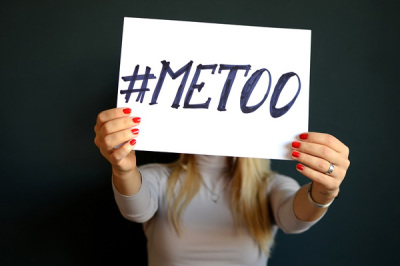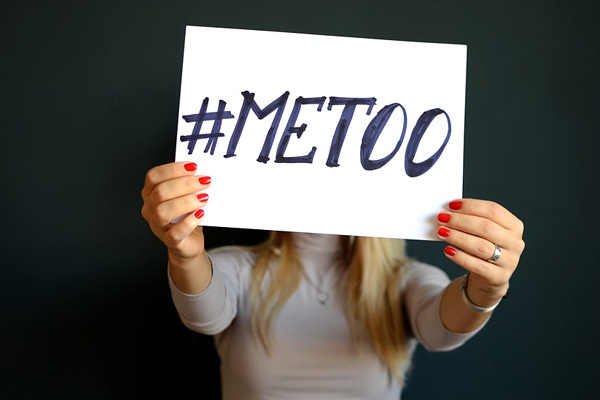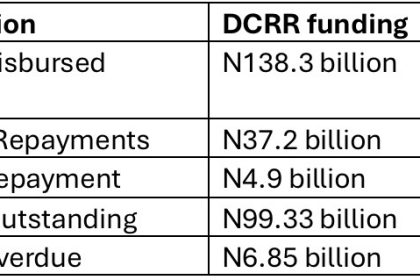
The #MeToo wave has crested, leaving in its foam many treasures. Harvey Weinstein is on Rikers Island. Alleluia. Multiple Christian celebrities guilty of abuse are in their own respective prisons. Also, alleluia. “Let justice roll down like water and righteousness like a mighty stream” (Amos 5:24).
But like every movement, we find parasites exploiting the popular oppressor/oppressed narrative. They attempt to slot themselves into the role of the oppressed, only to be revealed as oppressors in the end. Actress Amber Heard’s attempt to ruin actor Johnny Depp legendarily backfired. Actress Blake Lively, who accused director Justin Baldoni of on-set sexual harassment, may be facing the same fate. The unfortunate hashtag #BelieveWomen implied that women never lie about abuse. Oh, but they do. And given the story of Ms. Potiphar found in Genesis 39, students of Scripture should have known that from the get-go.
This subject is very meaningful tome because as of 2018, I’ve directed a church-related sexual abuse prevention and response ministry under the name ProjectSafeChurch.org. From the ministry’s beginnings, which overlapped the Me Too movement, I’ve felt a sense of conviction about the need to guard against extremes. I’ve wanted to ground efforts in Scripture rather than a popular trend. And I’ve wanted to hold space for all victims, not just those who fit the popular narrative. This means that if a man finds himself falsely accused of abuse, facing the specter of an unjustly ruined career and life, I want to hold a space of empathy and compassion for him just as I would for a woman who has been abused.
In fact, a false accusation is a form of abuse — reputational abuse, also called professional and/or personal defamation. In 2016 the University of Oxford Center for Criminology released a report about the effects of false accusations of abuse. Part of the executive summary reads:
“The majority reported high anxiety levels, severe depression, ill health and associated symptoms of trauma, with short and longer-term symptoms, with some experiencing permanent behavioural and personality changes. The effects of false allegations were felt by their partners and children too, with anxiety and depression experienced by many family members, in addition to consequential financial burdens. The stigma of a false allegation is felt by the whole family and can lead to family breakdown, or permanently damage the relationship.”[1]
Anxiety, depression, personality and behavioral changes, and relationship breakdown? These sound like what abuse victims experience. Overshooting the MeToo mark results in a whole new, yet vaguely familiar, form of trauma.
What saith the Lord about this? Well, He told us a really great story, actually. Here’s a summary:
The young Joseph, after a horrific fraternal betrayal, found himself sold as a slave to Midianite traders, who took him to Egypt where an officer of Pharaoh named Potiphar bought him. In Potiphar’s house Joseph flourished because he always flourished. But Mr. Potiphar had a devious wife who set her sights upon the young man.
The Bible goes out of its way to mention that Joseph was “handsome in form and appearance” (Genesis 39:6). Some say Potiphar was a eunuch and his wife sexually frustrated. Whatever her struggles, she targeted the hot young Israelite. He worked innocently in her presence until one day she began to cast longing eyes upon him, saying, “Lie with me” (vs. 7). Joseph righteously refused.
Day after day the harassment continued. Finally, the day came when the seductress found herself alone with her prey. She seized his garment, growling again, “Lie with me.” Joseph left the garment in her hand, fled naked from temptation, and pretty much sacrificed his life on the altar of principle. The woman spurned brought forth hellish fury, landing our hero in prison from which only a miracle could deliver him. It did, but that’s a different story.
In my experience as a person who has reviewed, to date, over 100 reports of sexual abuse in a church context, and as a survivor of sexual harassment and assault by a spiritual leader, and as a licensed professional counselor in private practice and treating trauma for over 15 years, I offer the following categories of sexual abuse reports.
True Blue — I would assert that the majority of reports come from honest reporters with no agenda other than truth and justice. Survivors often say they’ve forgiven the perpetrator, and very often show great hesitation to punish or expose him. Yet they understand that in order to protect others, they must speak up, and proper consequences must be applied. They manifest true courtesy toward those trying to help them, working cooperatively with the process, understanding the need for factual support, and calmly providing all the support they can.
Shad — What I would estimate to be a very small minority of reports come from Ms. Potiphar types. They have an agenda. Some want to shift the blame for their own misconduct onto an innocent man, and some have a vendetta of a different sort. These liar/murderers have no mercy in their hearts, even though they need much for themselves, and they often come at the reporting process in a spirit of supreme entitlement, demanding that everyone believe them, resenting the need for factual support.
Blurry — What I would guess to be a slightly larger segment of reports come from a place of confused emotionality. These individuals are not evil, but their perceptions are marred. I mention this class hesitantly because so often victims suffer being gaslit about their abuse experiences, as in, “You misunderstood,” or, “You haven’t processed your past trauma and it has altered your mind.” But while I hate the assumption of emotionality, it does sometimes impact the reporting process.
I hate to mention this category for another reason. Perpetrators groom. Grooming is, by definition, smoothing over. “Oh, that long hug I gave you? I’m from a huggy family and forgot for a moment.” What a groomer is actually doing is testing the victim to see how far they’ll go. Gaslighting comes in that package. So, when I mention that sometimes reporters misinterpret the actions of others, it’s with an awareness that groomers are quick to exploit the charge of misinterpretation. Yet, it is even so. Sometimes reporters have misinterpreted or exaggerated innocent actions into abuse.
Thanks to #MeToo, many honest reporters have found the courage to come forward. But the sea of humanity has also choked up a few shady and blurry types. As never before, and in this work of abuse response above all else, we need the promise and counsel found in 1 Peter 5:8-10:
“Be sober, be vigilant; because your adversary the devil walks about like a roaring lion, seeking whom he may devour. Resist him, steadfast in the faith knowing that the same sufferings are experienced by your brotherhood in the world. But may the God of all grace, who called us to His eternal glory by Christ Jesus, after you have suffered a while, perfect, establish, strengthen, and settle you.”
[1] https://www.law.ox.ac.uk/sites/default/files/migrated/the_impact_of_being_wrongly_accused_of_abuse_hoyle_et_al_2016_15_may.pdf
Jennifer Jill Schwirzer, LPC, has a Master’s degree in Mental Health Counseling from Capella University, and a doctoral degree in community counseling and traumatology from Liberty University. She is an author, speaker, TV host, professional counselor, musician, wife, mother, lover of Jesus, and a friend to many. She has spoken all over the world, written 14 books, and hosted two TV programs.







